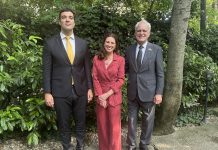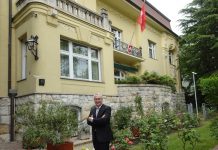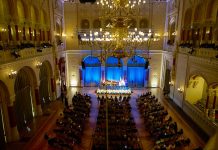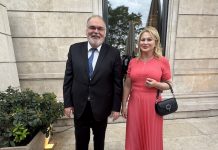“Bulgaria and Hungary: 1000 Years of Togetherness, Connectivity and Security”
Edited by Anna Popper
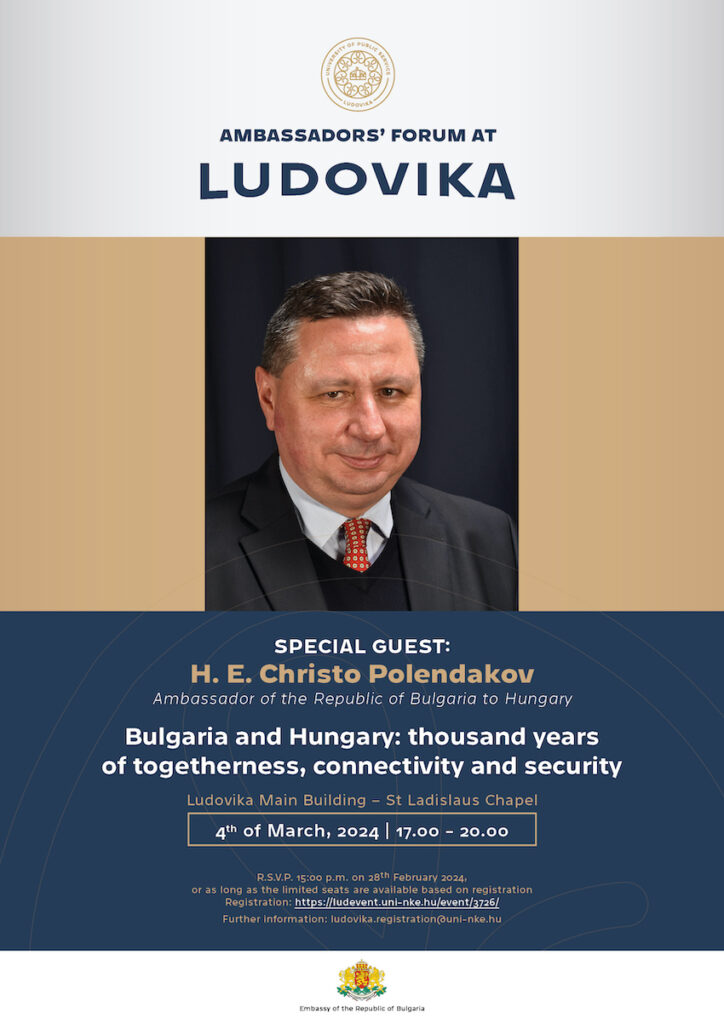
To mark the Bulgarian National Day, officially known as the Liberation Day of Bulgaria and the Historical Resilience of Bulgarians, observed annually on 3 March, the Ludovika University of Public Service in Budapest and the Embassy of the Republic of Bulgaria to Hungary hosted the upcoming Ambassadors’ Forum event series, entitled: “Bulgaria and Hungary: 1000 Years of Togetherness, Connectivity and Security”. Numerous members of the Diplomatic Corps, Hungarian officials, and Bulgarian nationals, students and friends of Bulgaria attended the event.


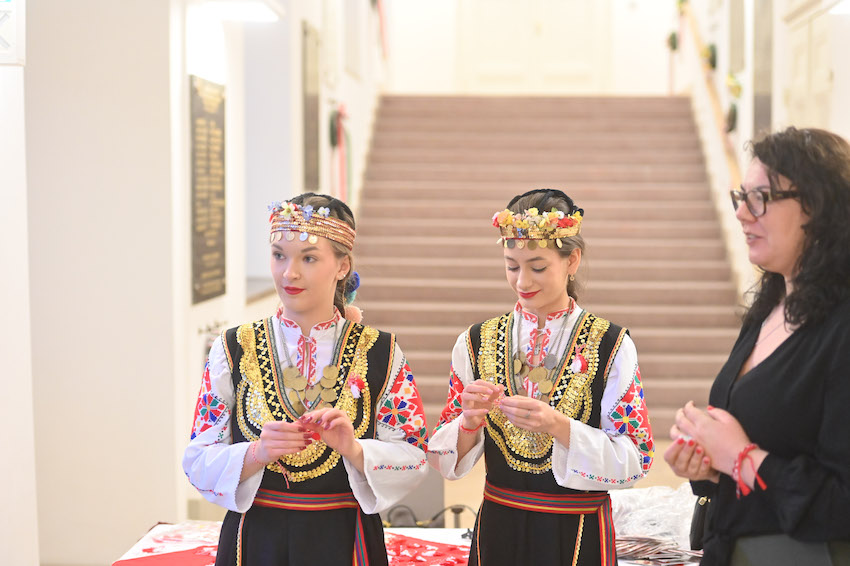
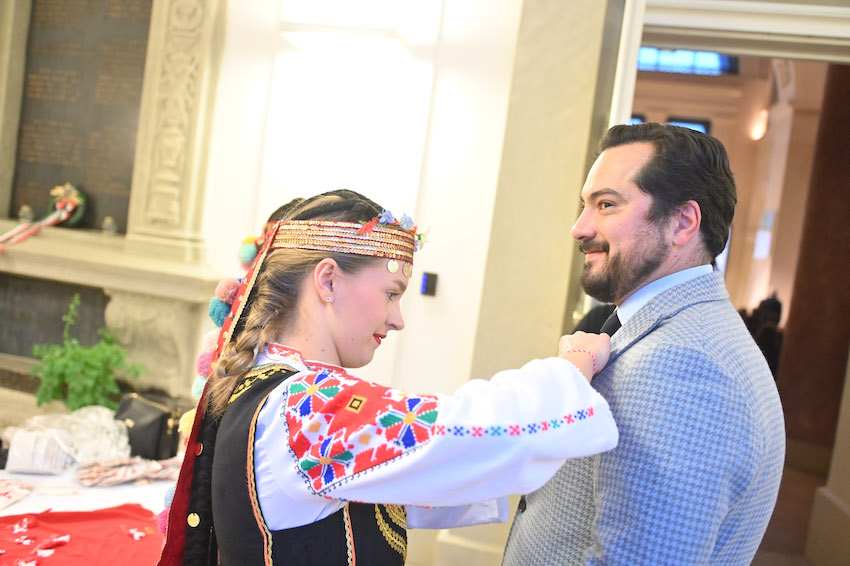
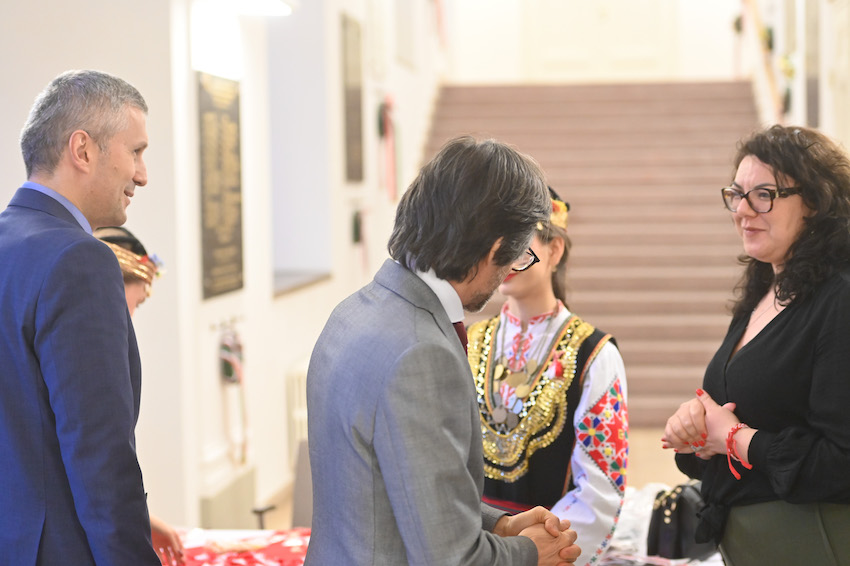

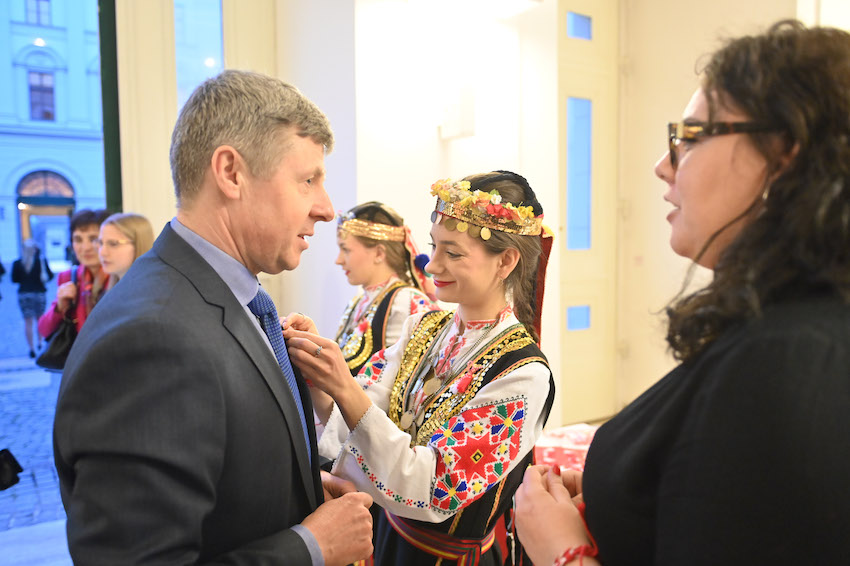
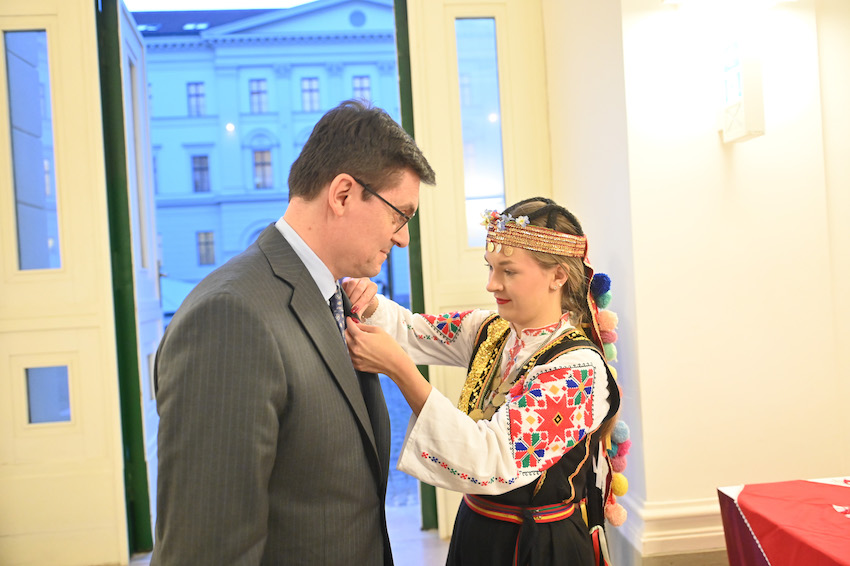
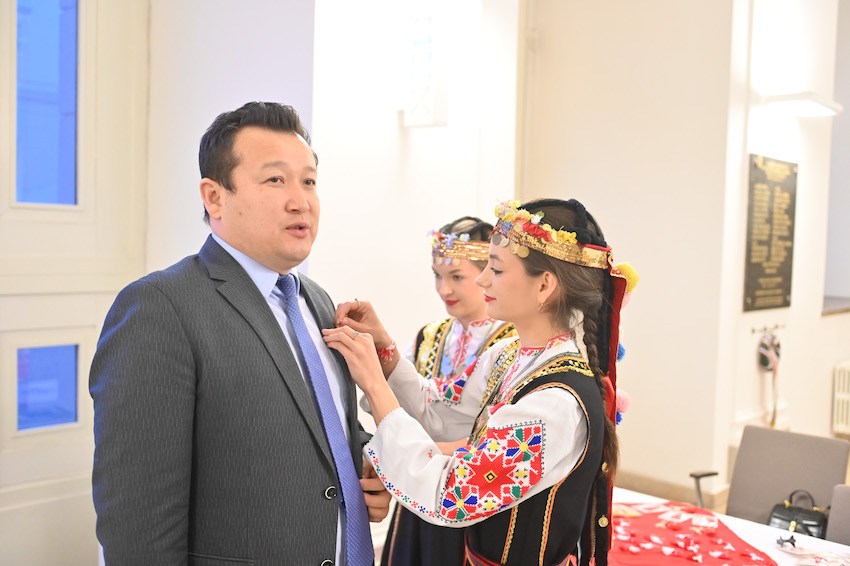
Prior to the commencement of the function, Professor Pier Paolo Pigozzi Sandoval, Vice-Rector for International Affairs at the Ludovika University of Public Service (LUPS-NKE) welcomed the main guest, H.E. Christo Polendakov, Ambassador of the Republic of Bulgaria to Hungary for a discussion on the university’s programs and initiatives in his office.
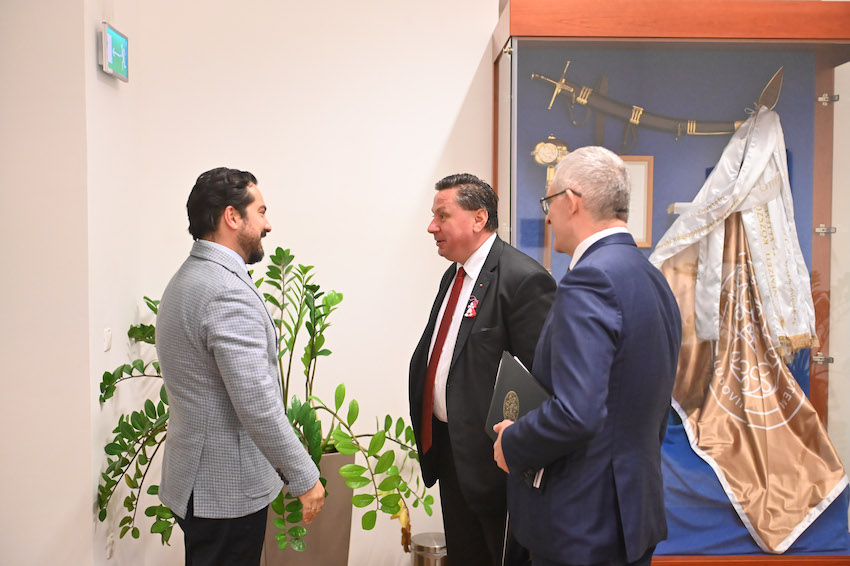
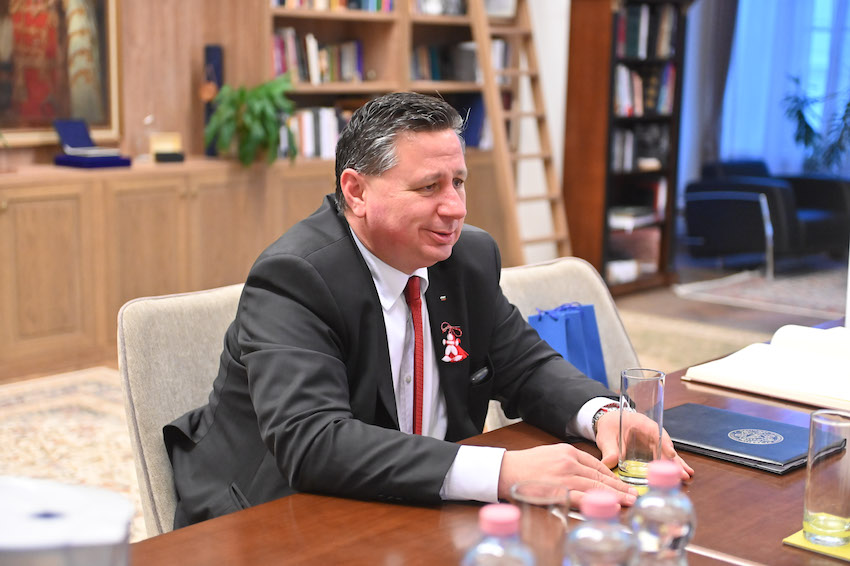
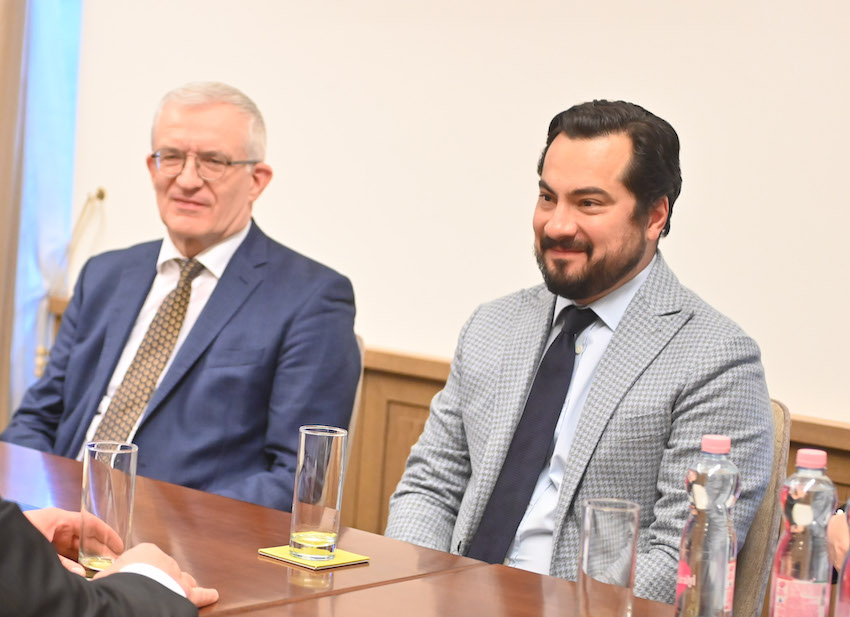
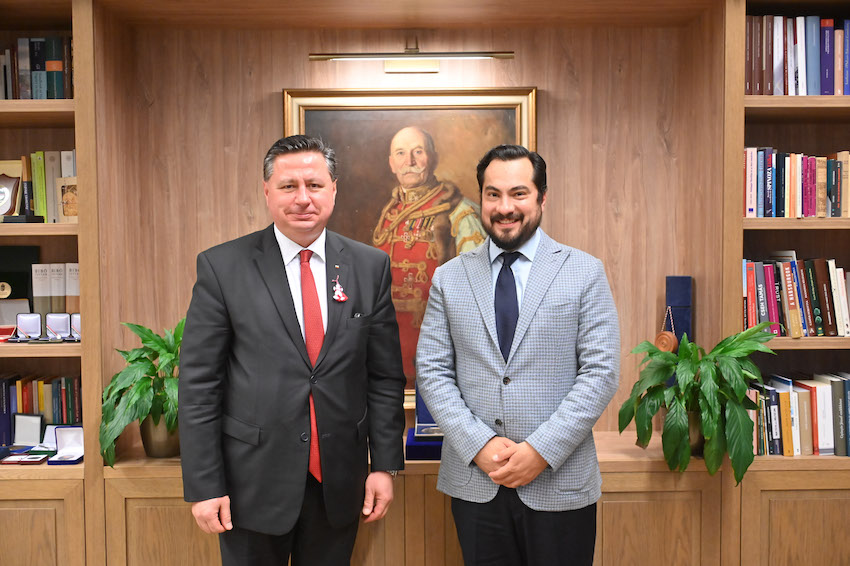
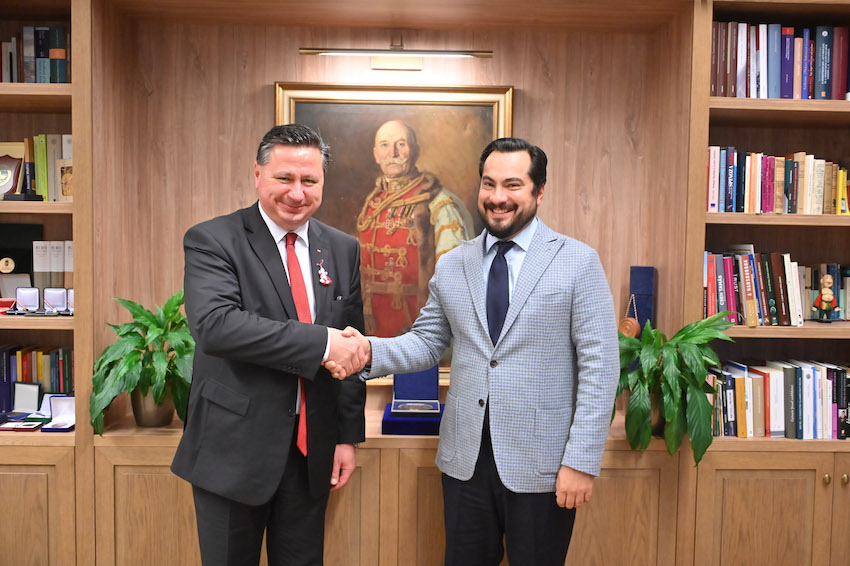
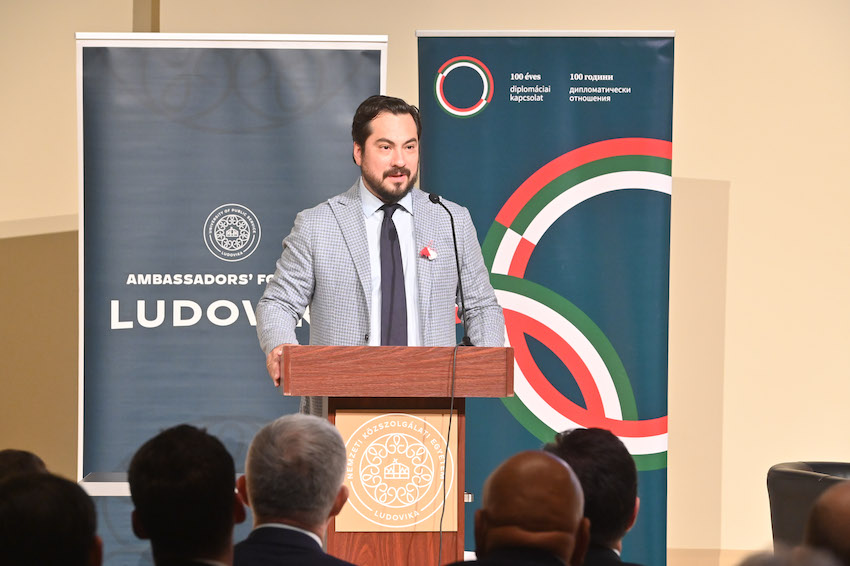
The event, held in the St Ladislaus Chapel of the Ludovika, started with the welcome address of Vice-Rector Prof. Pier Paolo Pigozzi. Reviewing the Hungarian-Bulgarian relations, Professor Pigozzi mentioned that NKE maintains mutually beneficial relationships with Bulgarian universities. As a result, Bulgarian students are currently hosted on the campus. This practice not only serves to strengthen cultural and scientific ties between the two countries, but also adds international experiences to the academic journey of NKE students. He also emphasised the development of international partnerships, providing students with insight into world-shaping events, which is a key strategic objective of NKE and the opportunity to explore the cultures, mindsets and methodologies of other countries, contributing to the progress of a broader and more international perspective. This is important, because it helps students contextualise their studies and understand global challenges and opportunities.
It was followed by the keynote speech of H.E. Christo Polendakov, Ambassador of the Republic of Bulgaria to Hungary:
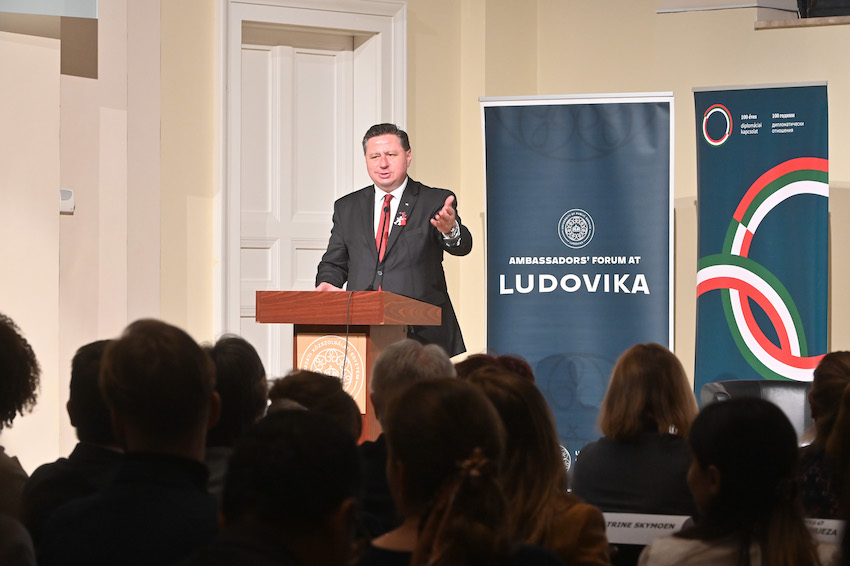
“Distinguished Vice-Rector of Ludovika University for Public Service, Professor Pier Paolo Pigozzi, Esteemed Excellencies, Professors, Officers, Colleague-Diplomats and dear Students, sincere thanks for the opportunity to engage with you today in marking the 146th anniversary of the Liberation of Bulgaria – our National day.
We commemorate the Peace Treaty of San-Stefano between the Russian and Ottoman empires at the conclusion of the Russo-Turkish War of 1877-1878. The treaty provided the establishment of an autonomous Principality of Bulgaria following almost 500 years of Ottoman rule in the Bulgarian lands. Bulgarians celebrate the day the treaty was signed, 3 March 1878, as Liberation Day.
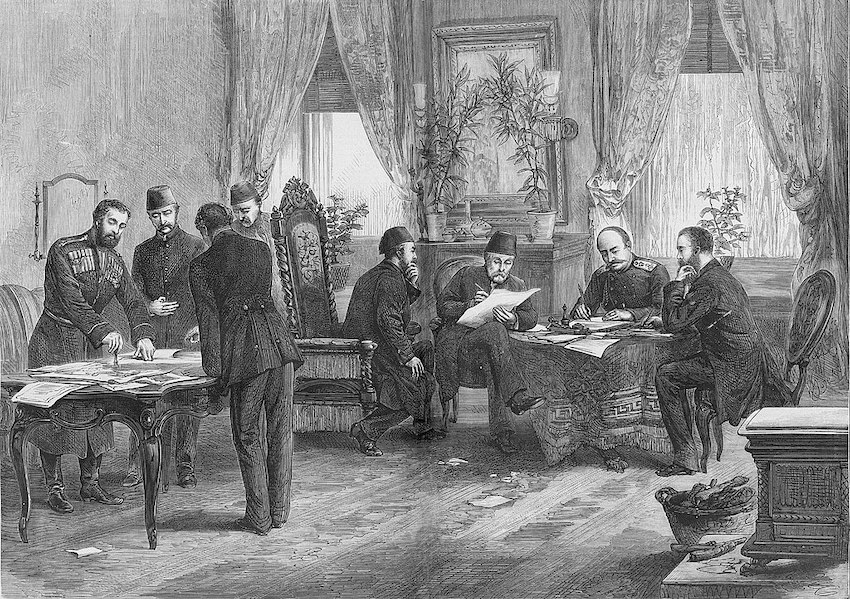
Together with remembering all our Bulgarian heroes, I herewith express the profound gratitude of all Bulgarians to those known and unknown Russians, Romanians, Finns, Ukrainians, Serbs and Montenegrins, who have dedicated and given their lives for the freedom of Bulgaria.
Today, we also celebrate together the beginning of the new cycle of Nature in the beginning of March, in Bulgaria and our neighbours – Romania, Moldova and North Macedonia, we provoke and invite the Spring by exchanging Martenitsas. This age-old tradition has been inscribed in 2017 on the UNESCO list of Intangible Cultural Heritage of Humanity. The main practice consists of making, offering and wearing a red and white thread, which is then untied when the first blossom tree, swallow or stork is seen. The token is considered to provide symbolic protection against perils such as capricious weather, with the practice ensuring a safe passage from winter to spring and splendid interaction with Nature.




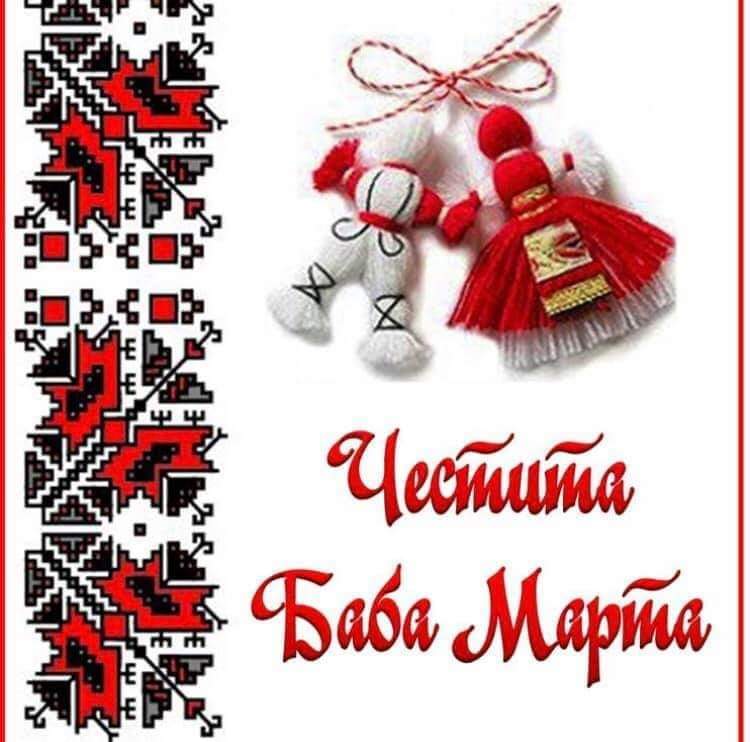
Now to the challenge of the announced theme of today’s Ambassadors’ Forum – Bulgaria and Hungary: 1000 years of togetherness, connectivity and security … and another thousand, at least, to come … Bulgaria and Hungary are two fundamental European countries that have a long and complex history of interactions in the Central and Eastern part of the continent. One can not but note that in many pre-medieval and medieval archives, both the Bulgars and the Magyars are often mentioned together. The relations between Bulgaria and Hungary have been shaped by various factors – geography, cataclysms, culture, religion, politics and external threats.
When I stand before the majestic monument at the Budapest Heroes’ Square, I immediately draw parallels with the horseback warrior from the rock carving of Madara and the founders of the Bulgarian State in 681 AD.
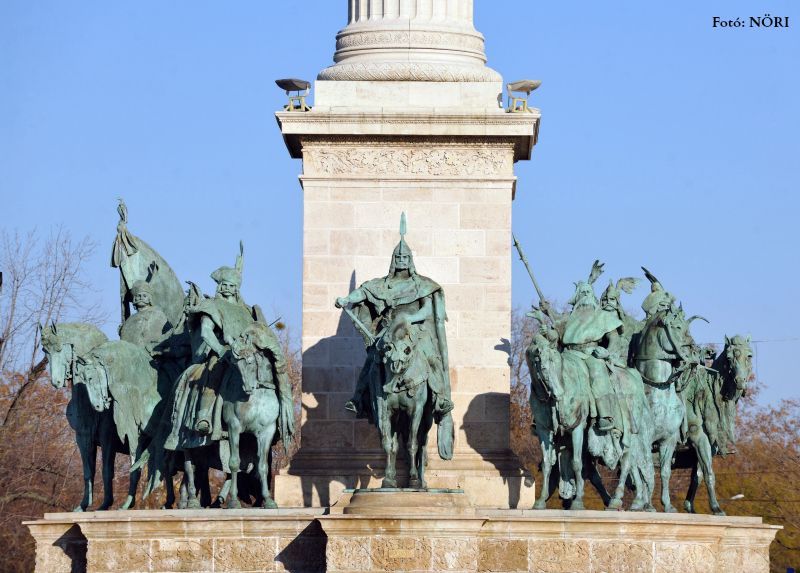
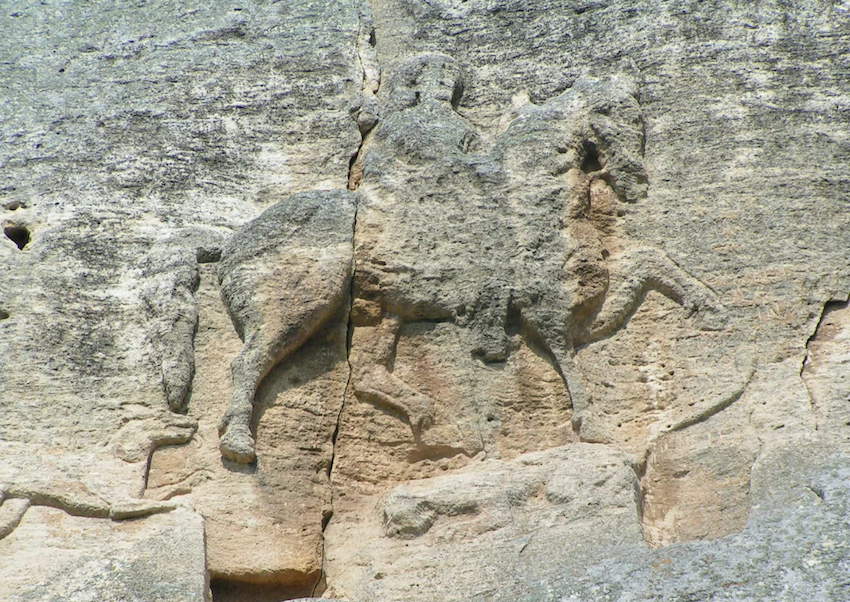
An important factor that has shaped the Bulgarian-Hungarian relations is the shared geography along the Danube River, which has been both a source of cooperation and conflict ever since the ancient Danubian civilisation, which dominated the Balkan peninsula between the 6th and 4th millennia BC, and was using a writing system long before the Mesopotamians. Very probably it was this enigmatic old European culture that was the actual reason for the migration and settlement of the Bulgars and Magyars on our today territories. Over thousand of years we both have used the same trade routes and developed our cultures on the basis of common mythology, arts and crafts. We share a common strong riverian culture. River flows connect people, places and other forms of life, inspiring and sustaining diverse cultural beliefs, values and ways of life. The Danube River has been, is and will be a vital element in the development and survival of the Bulgars and the Magyars, as it provides not only common challenges, but also great opportunities.
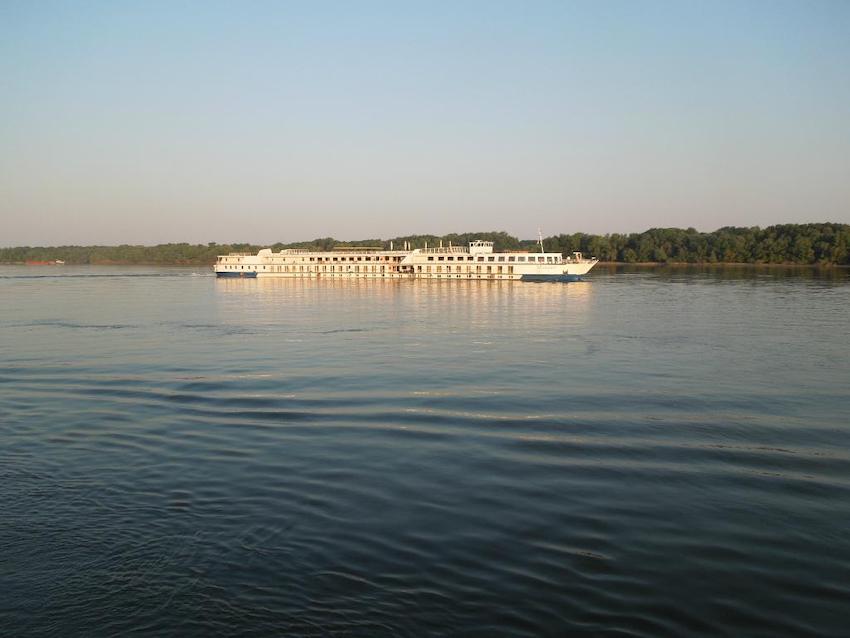
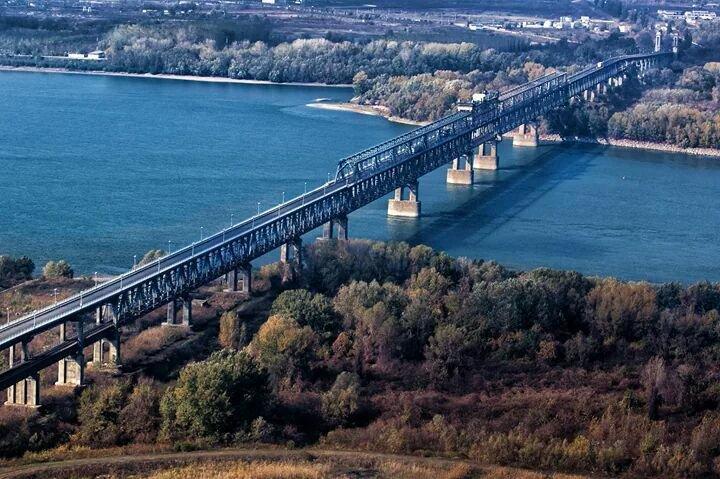
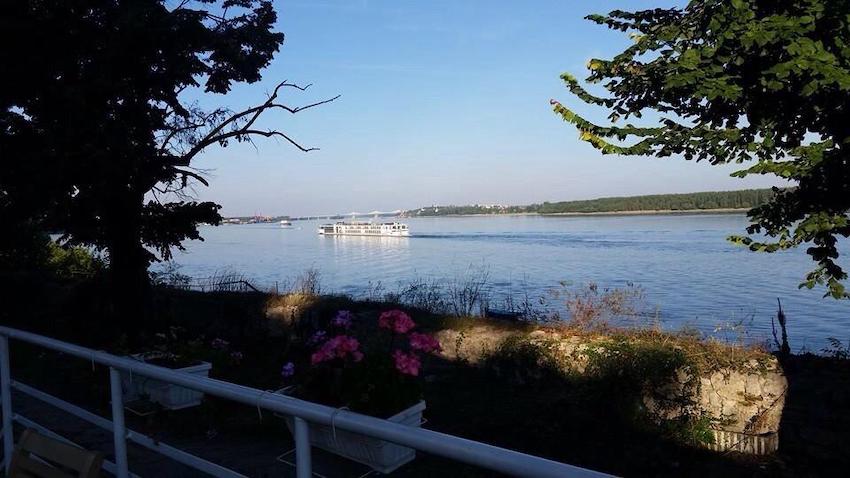
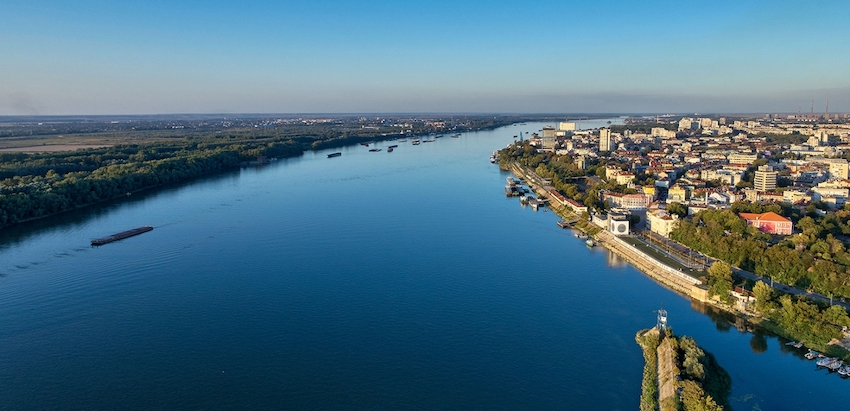
After King Stefan I, – Szent István, unified the Carpathian Basin and founded the State of the Magyars, our two countries and peoples continued to coexist in adjacent territories and closely interacted. There were many dynastic marriages between the Bulgarian and Hungarian royal families, including the Árpád Dynasty in the 13th century and signing alliances agreements against common threats (eg. such as King Samuel of Bulgaria and Princess Agatha of Hungary, or King Stephen V of Hungary and Queen Elizabeth the Cuman).
It is worth mentioning our common element of Christianity in the state structure and the role of the medieval crusades in which we joined forces and experienced similar victories or losses. All these have left similar marks on our arts, iconography and architecture.
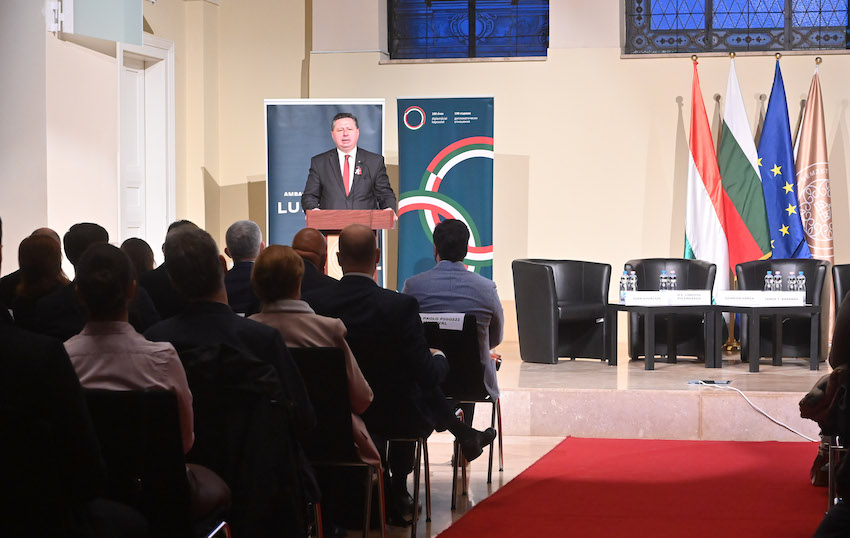
Countries are like people, they have a common legacy as they share histories, especially when they are equally exposed to the same or similar external factors, as inevitably was in our case:
The effects of Nature – when we look closer at particular phases of our development, inevitably we come across the providential effects of natural disasters or climatic cataclysms. At particular moments earthquakes shook and destroyed major fortresses and military fortifications, floods brought destruction, devastation and disease, climate changes led to adaptation of our agricultures and livestock breeding. Such detrimental processes we could not manage well in the past and both Bulgaria and Hungary had to suffer, endure and learn to overcome. These have seriously challenged our well-being and development, and have had serious effect on our common historic development.
The Black Death (the Bubonic plague) – as wars and famine-driven migration, together with the development of shipping and the exponential growth of port cities in the 13th century led to numerous fleas- and rats-disseminated pandemic waves of the Yersinia pestis bacterium that not only exterminated great number of our populations, but imposed fundamental socio-cultural and politico-economic changes.
As I was preparing for my posting to Budapest during the recent Covid-19 lockdown, I was provoked to do a dedicated research on pandemic occurrences and was amused to discover that only in the 18th and 19th centuries there were at least 12 lethal epidemic waves in our part of the world, all of which were serious game-changers for both Bulgaria and Hungary. The effect of these on our demographics is not studied in detail, but surely, we were on the losing side. The economic downturns as a result, together with the introduction of the necessary, but detrimental for the free exchange and communication quarantine systems have also taken their toll and is something to learn from and prepare to deal with in the future, be it in the biological or artificial intelligence domain.
Directly linked to these are the well studied effects of History – and here we must mention the Ottoman Empire, which conquered and dominated the Balkans and parts of Hungary. Bulgaria lost its independence and was a vassal country for five centuries. Throughout this period the Ottomans were perceived as a common enemy and a challenge for both Bulgaria and Hungary, as they struggled to preserve their independence and identity.
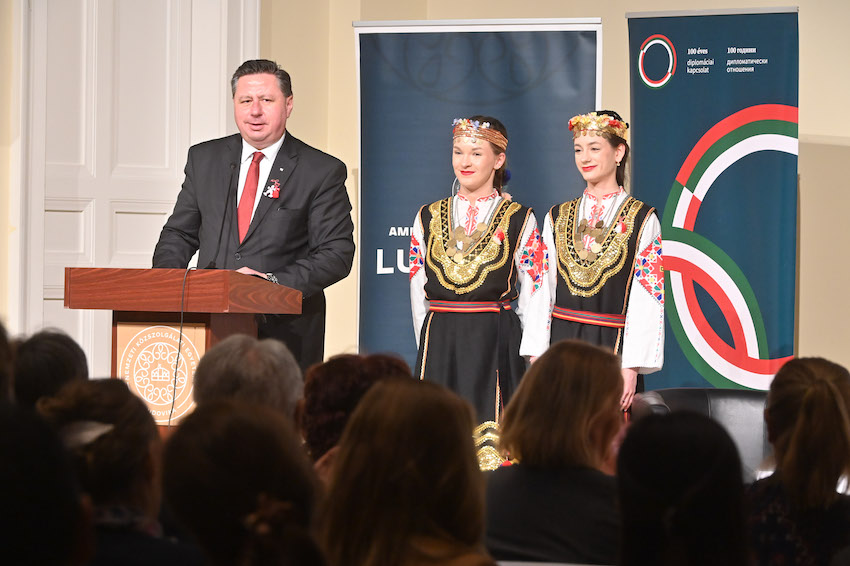
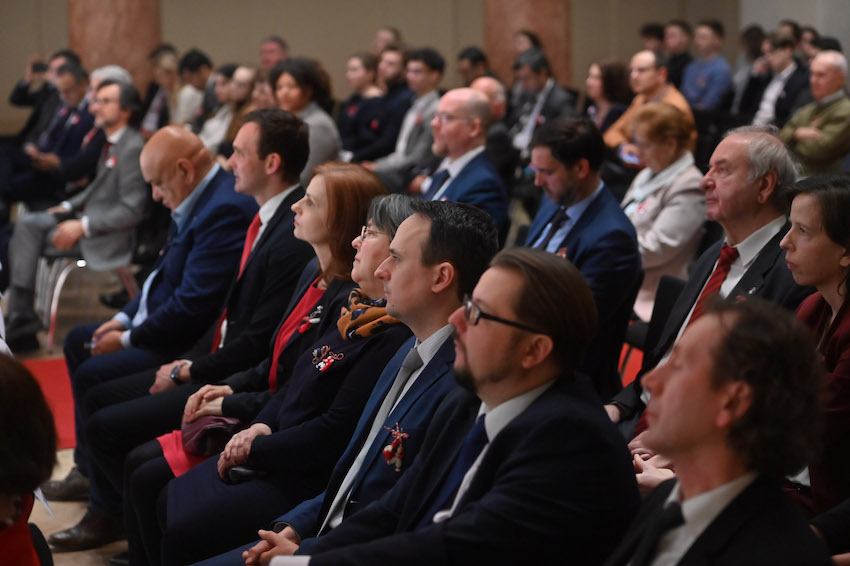
The Austro-Hungarian dual monarchy under the Habsburg Dynasty, which emerged as a major power in Central Europe after the 1867 Ausgleich (Constitutional Compromise), had a complex and often tense relationship with Bulgaria, as it sought to expand its influence and control over the region.
World Wars I and II, which involved both our countries as allies of Germany, had a profound impact on our political and territorial fate, as we both faced the consequences of defeat and the imposition of new borders and regimes.
The post World War II Sovietisation during the Communist era, which lasted from 1945 to 1989, again brought Bulgaria and Hungary close together, this time under the Moscow-imposed same party system, military doctrine and cultural influence. This model equally limited our sovereignty and autonomy, but also fostered some additional direct economic and cultural cooperation within the capsulated socialist bloc. But, both our peoples had absolutely the same attitude towards Stalin, Khrushchev and Brezhnev. Another sad, but formative common experience.
After the collapse of the Berlin wall and the end of the Cold War, both our countries embarked on the path of the European integration. Bulgaria and Hungary shared the same goal and sought a common framework for both countries – to join the European Union and NATO, and to enhance their prosperity and guarantee their security. Here, History once again played its decisive role – the fire of war in the former Yugoslavia disrupted and delayed the integrative process of Bulgaria and we, together with Romania, could only join NATO in 2004 and the EU in 2007. Delayed were also our entry into Schengen-zone and the EURO-zone, but it seems that our efforts to catch-up are giving the expected results to the benefits of all.
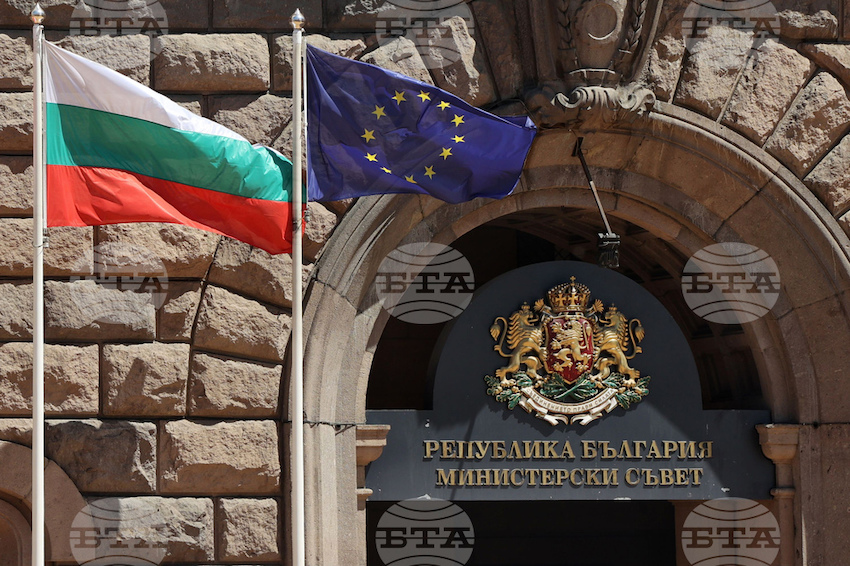
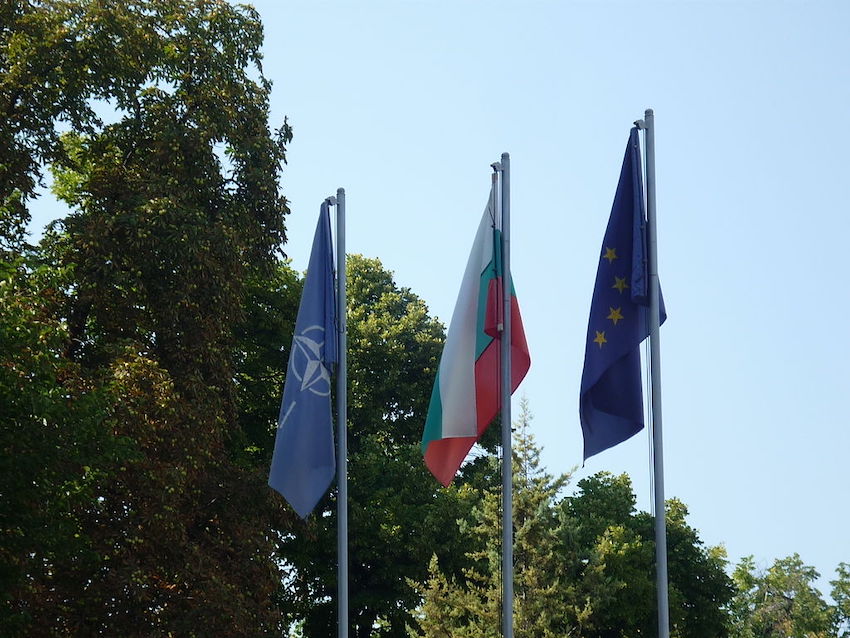
One of the most significant aspects of the Bulgarian-Hungarian relations is the cultural exchange that has occurred between the two countries over the centuries. In recent years this process has been reinforced by the numerous touristic exchanges. The cultural and peoples’ exchanges have enriched the diversity and quality of both countries’ products, institutions and expressions, and have fostered mutual respect and true understanding. Bulgaria and Hungary have maintained their distinct identities and traditions, despite the external threats and the internal changes. The Bulgarian-Hungarian relations are an example of how geography, culture, politics and history can shape the fate and the future of both. The two countries can benefit from further cooperation and dialogue, especially in the context of the European integration and the dealing with the contemporary threats and challenges.
Now – let’s turn back to today and the next thousand years of togetherness, connectivity and security. This is an inevitable process which is well understood both in Sofia and Budapest.”
Following the formal proceedings, a round table discussion ensued, covering the following topics to deal with: Schengen, Migration, Euro, Energy, Security, Research and Development, and Connectivity, moderated by Amb. Iván Gyurcsík, Rector’s Adviser for Regional Cooperation. The panel of experts included Mr. Szimeon Varga, Advocate for the Bulgarian National Minority in the Hungarian Parliament, and Mr. János T. Barabás, Senior Analyst at the Hungarian Institute of International Affairs.
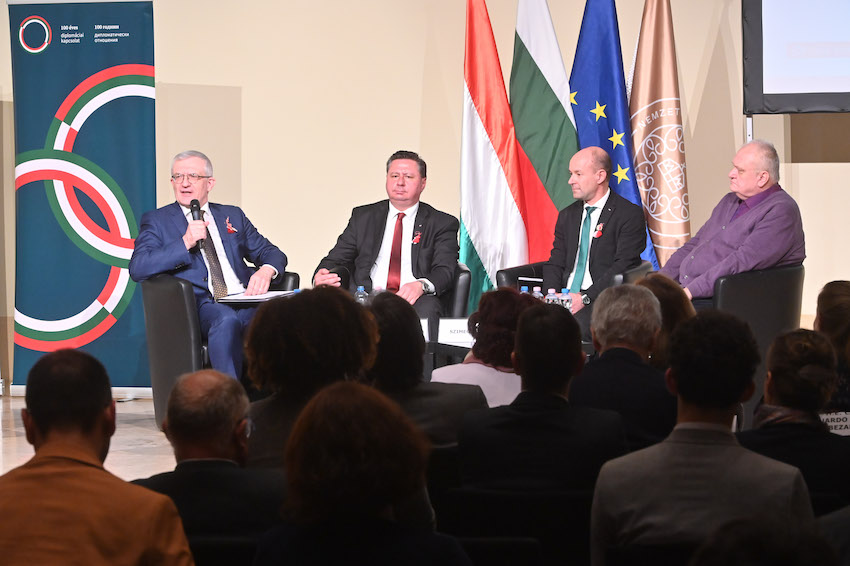
As a part of the panel discussion the audience could listen a report by Mr. Szimeon Varga:
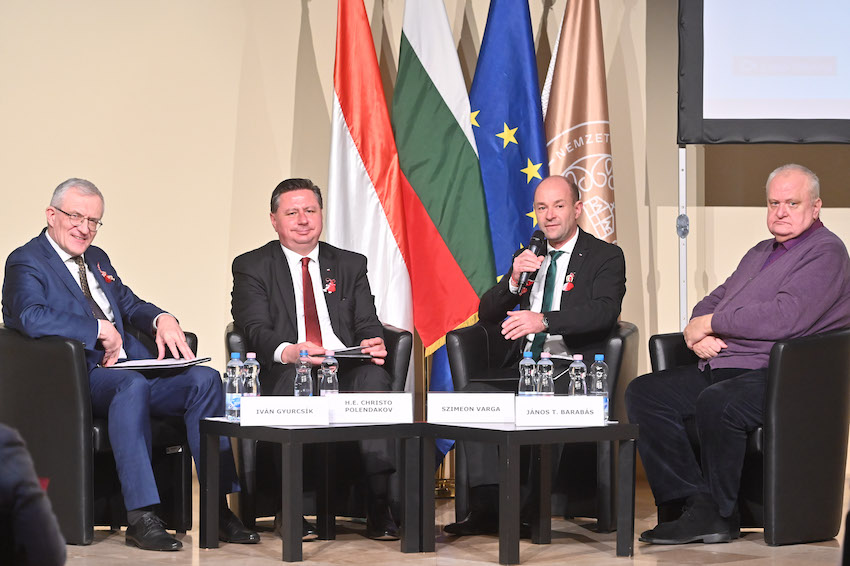
“Thank you for being here today. I am very happy to share with you some of my experiences as a member of the Bulgarian community in Hungary, and to give some insight into the life and achievements of our community. Let me tell you a bit about the history of the Bulgarian gardeners, who played a significant role in the Hungarian agriculture. The Bulgarian gardeners came to Hungary in the second half of the 19th century, mainly for economic reasons. They learned the art of gardening of vegetables and irrigation from the Turks, and they brought their skills, knowledge and methods to Hungary, the famous Bulgarian Dolap. They settled in various regions of the country, especially near Budapest and the big cities, where they could find fertile lands and good markets for their products. They worked in small groups, rented the lands, and shared the profits. I am proud to say that I come from a Bulgarian gardener family. I still remember how I helped my parents with the agricultural tasks, such as planting, weeding, harvesting. I learned a lot from them, not only about gardening, but also about life, values and culture. They also taught me to be proud of my Bulgarian heritage, and to preserve our traditions and language. The Bulgarian gardeners are a remarkable example of how migration and adaptation can influence and enrich a society, culture and economy.

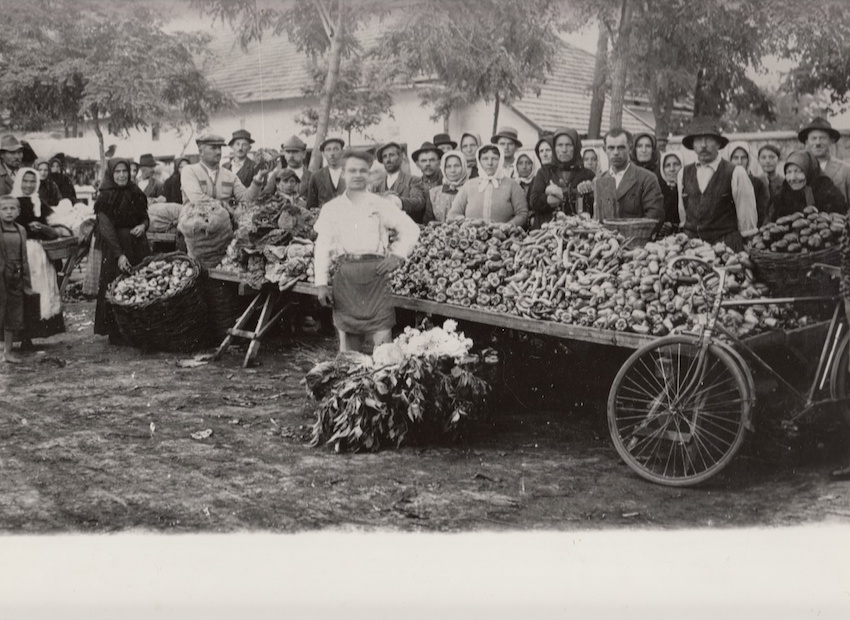
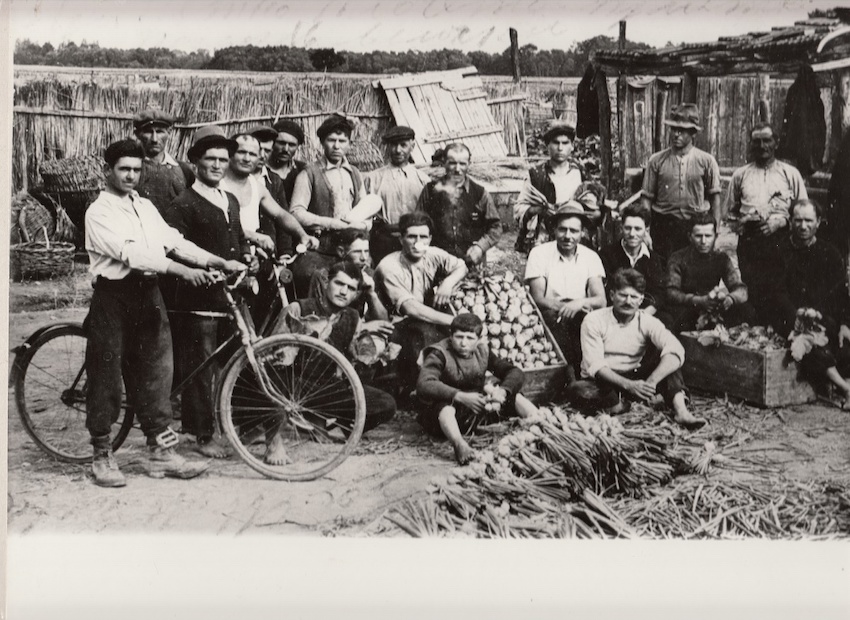
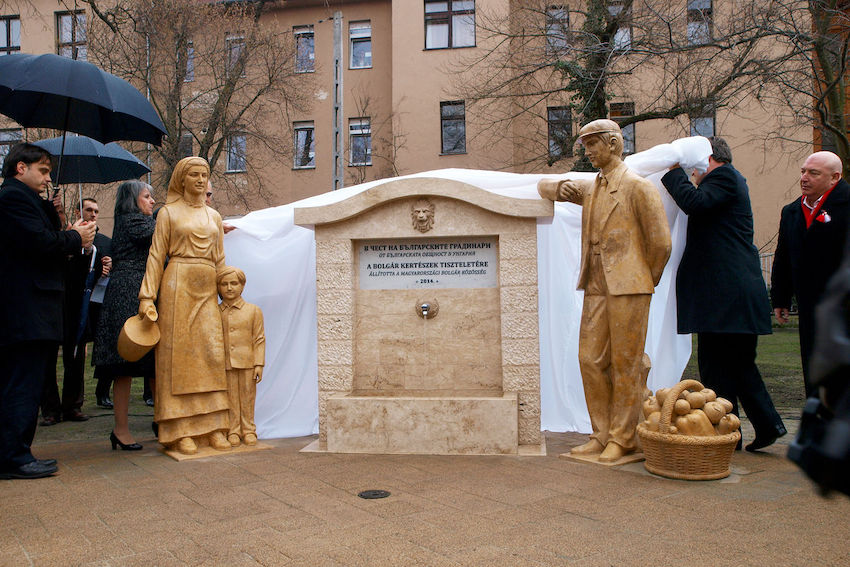
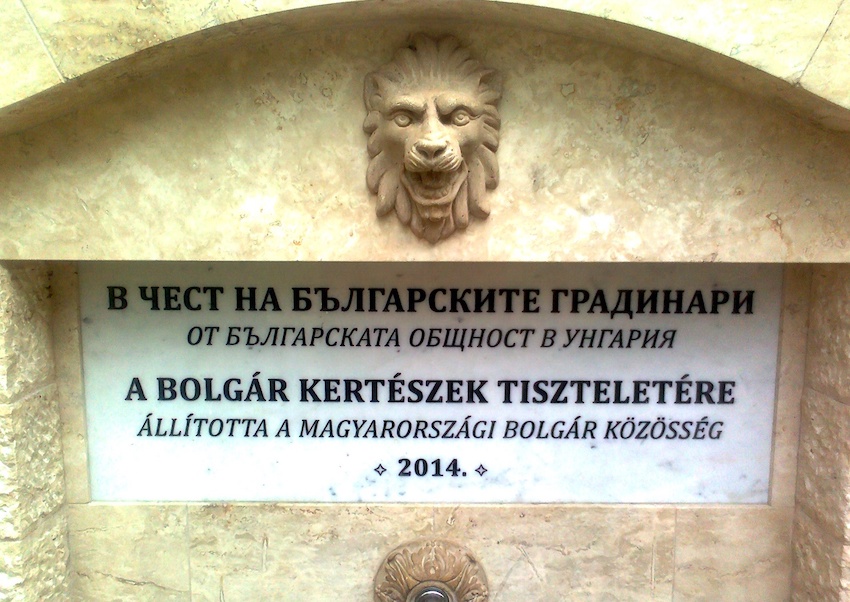
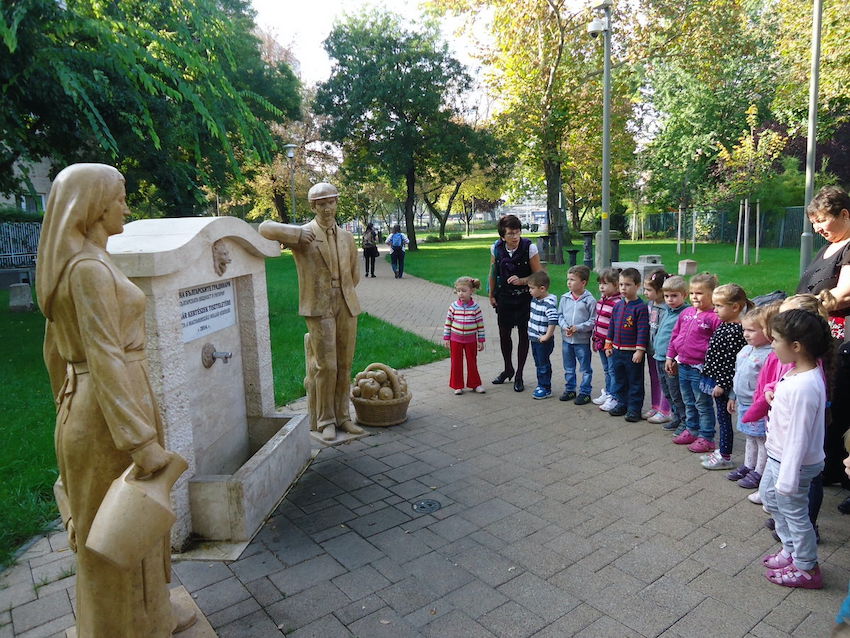
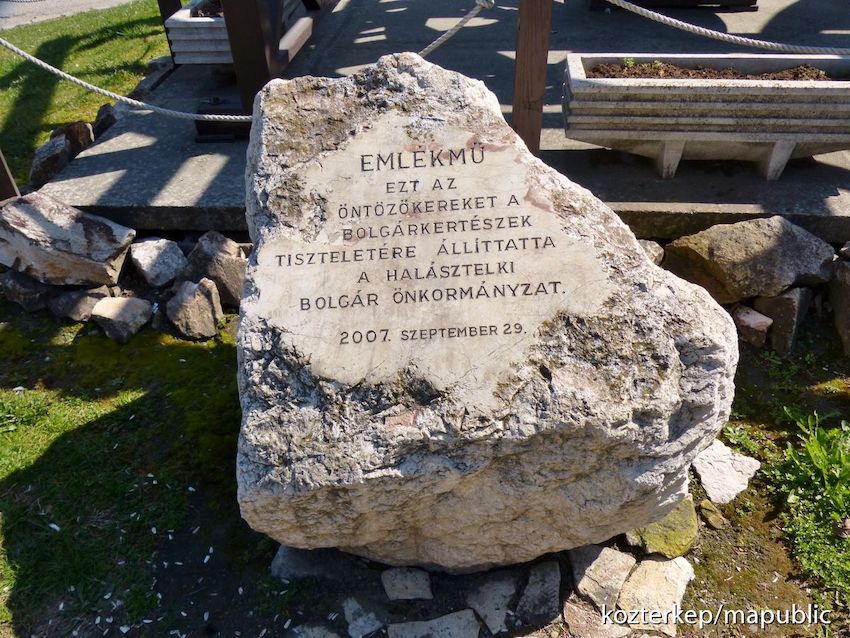
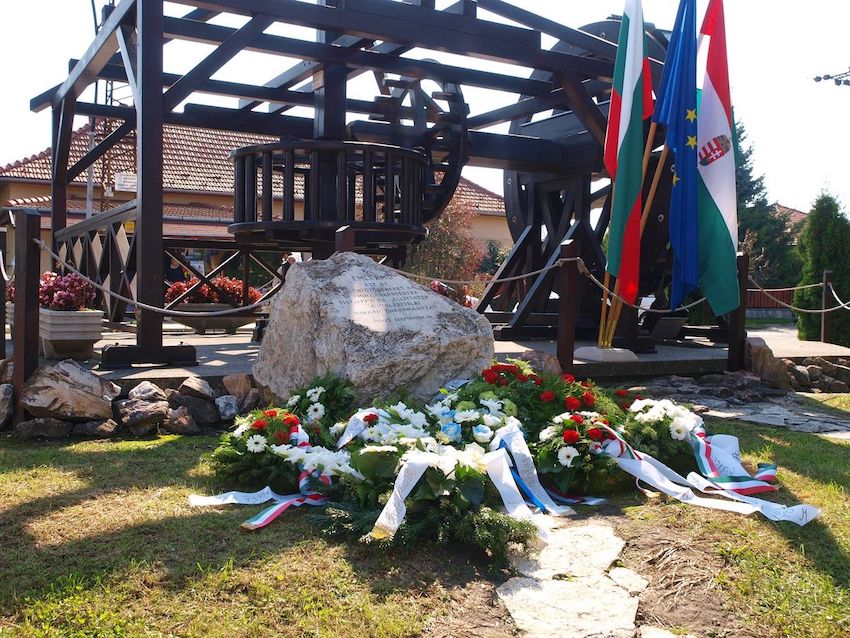
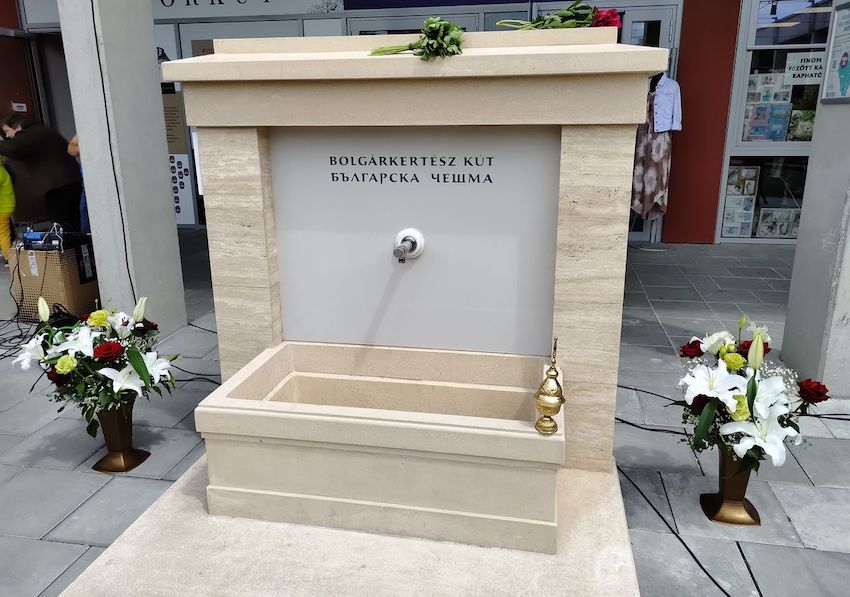
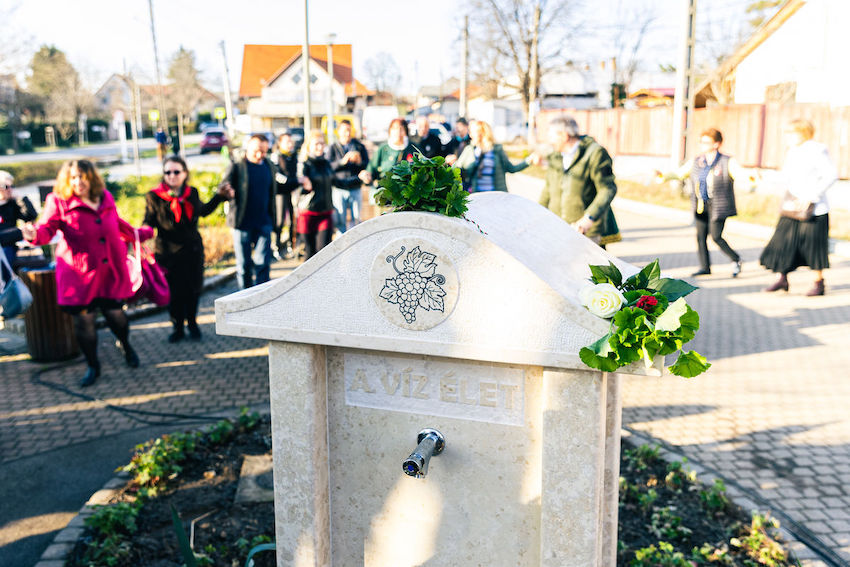
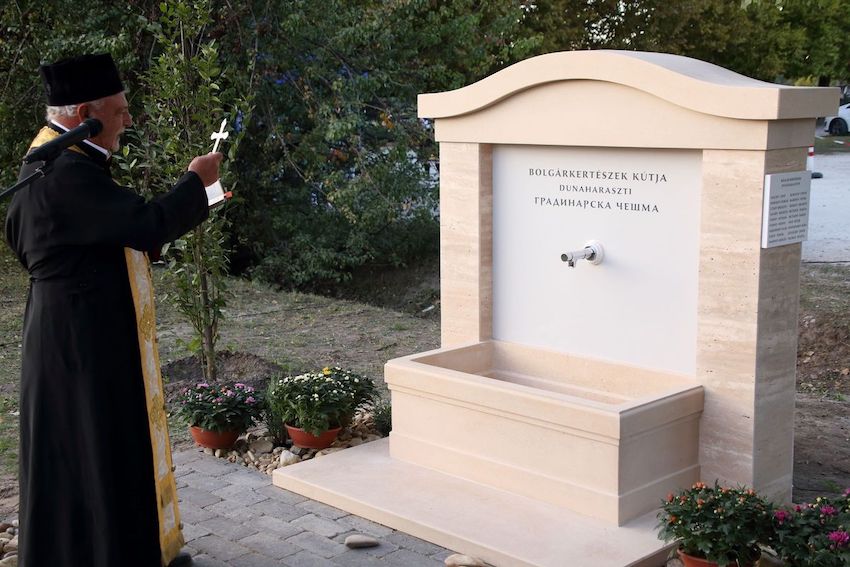
Today, it is estimated that the Bulgarian community in Hungary comprises around 6,000 individuals. Bulgarian is one of the 13 officially recognised ethnic groups in Hungary. They have smoothly integrated into the Hungarian society and established their own institutions, such as the Bulgarian Orthodox Church of Saints Cyril and Methodius, the Bulgarian Institute of Culture, and the Bulgarian School in Budapest.
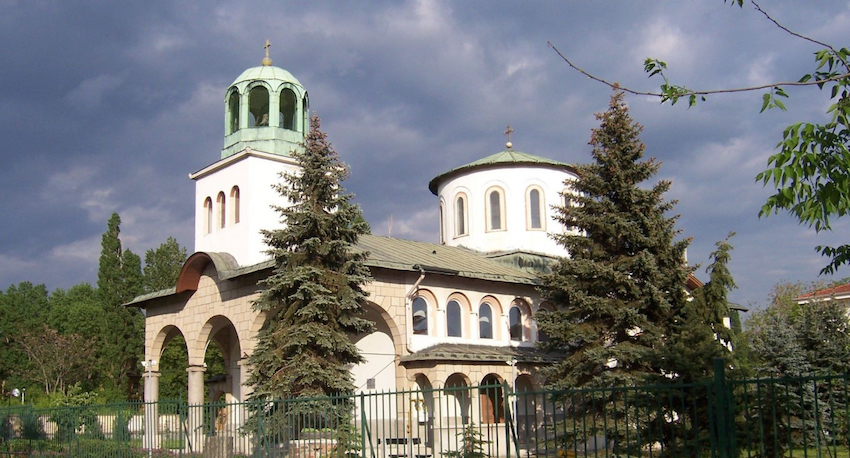
The Bulgarian School in Budapest is an educational institution that provides Bulgarian language and cultural education to Bulgarian children. The school aims to preserve and promote the Bulgarian language, traditions and heritage among the younger generation of Bulgarians living Budapest, to stay connected to their roots. The teachers at the Bulgarian School are dedicated professionals, who are passionate about teaching and nurturing the students’ love for the Bulgarian language and culture. The school provides a platform for students to celebrate Bulgarian holidays and traditions, and develop a strong sense of identity and belonging.
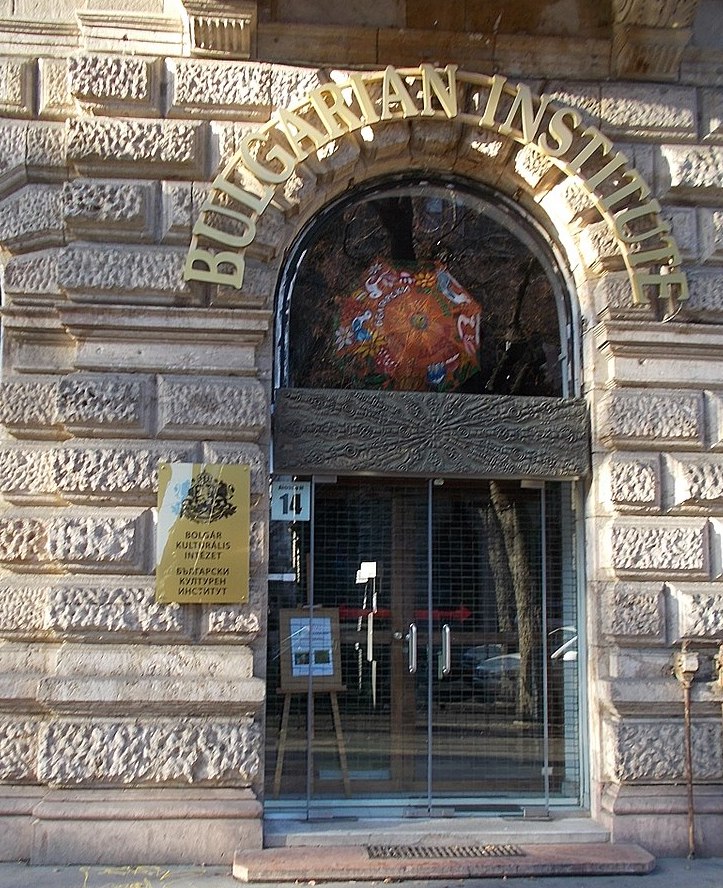
I am actively involved in the Bulgarian community life, participating in the organisation of events at the Bulgarian Institute of Culture and the Bulgarian National Minority Self-government.
The Bulgarian community in Hungary has a bright future ahead, as a new building of the Bulgarian Educational and Cultural Center is under construction, in the 9th district of Budapest. It will house the Bulgarian Minority kindergarten and school, a theatre, a gallery, a library, the Bulgarian Research Institute, the Bulgarian Cultural, Documentation and Information Centre, as well as the Bulgarian national minority self-government. The center, supported by both the Hungarian and Bulgarian governments, was initiated by the Bulgarian national minority self-government. This new establishment is poised to become a significant resource for the Bulgarian community, offering a contemporary and ample space for the advancement, preservation, and dissemination of Bulgarian language, culture, history, and traditions. Moreover, it will serve as a hub for interaction, dialogue, and collaboration among various nationalities and cultures within Hungary. The center serves as a symbol of friendship and cooperation between Hungary and Bulgaria and it will open in May 2024.
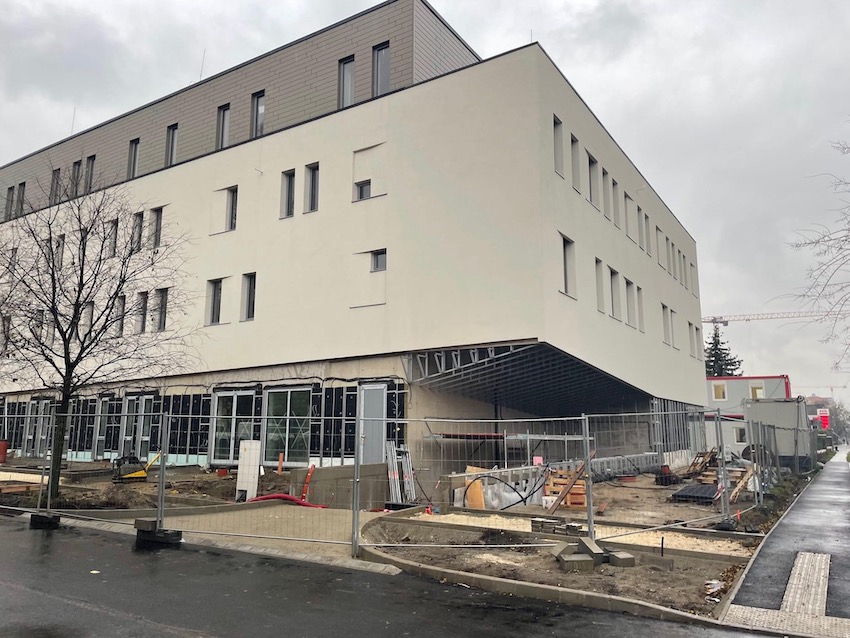
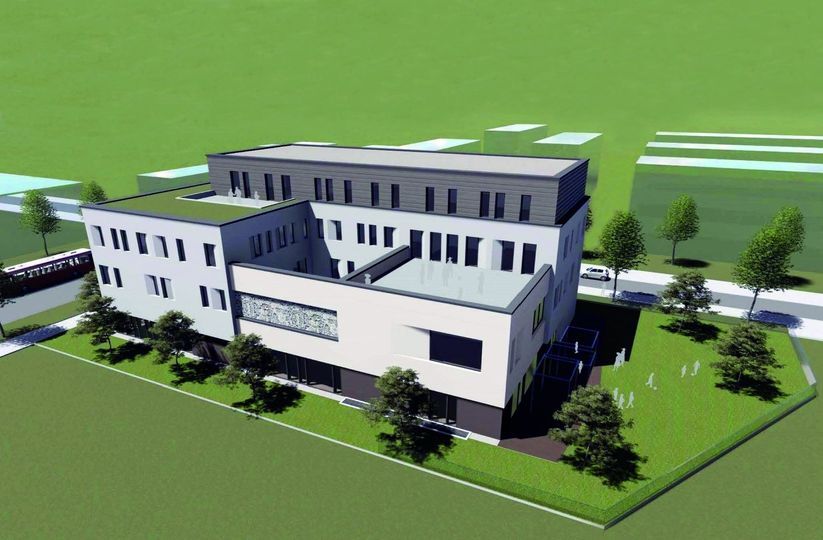
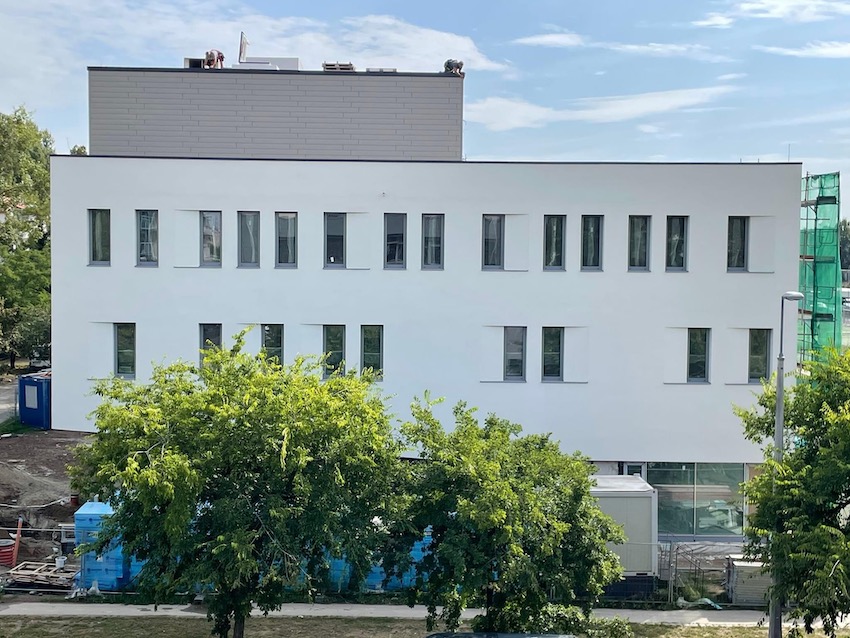
I have been representing the rights of the Bulgarians in the Hungarian Parliament since 2014. One of my proudest achievements as a Bulgarian national advocate was to propose the establishment of the Hungarian-Bulgarian Friendship Day, to be celebrated on 19 October, the Day of St Ivan Rilski 876–946. (Saint John of Rila, the Wondermaker, is recognised as the first Bulgarian hermit, who created many miracles, and revered as a saint while he was still alive. He lived in a cave within the forests of Rila Mountain, in proximity to the present site of the Rila Monastery, that in 1983 was honoured with designation as a World Heritage Site by UNESCO.)
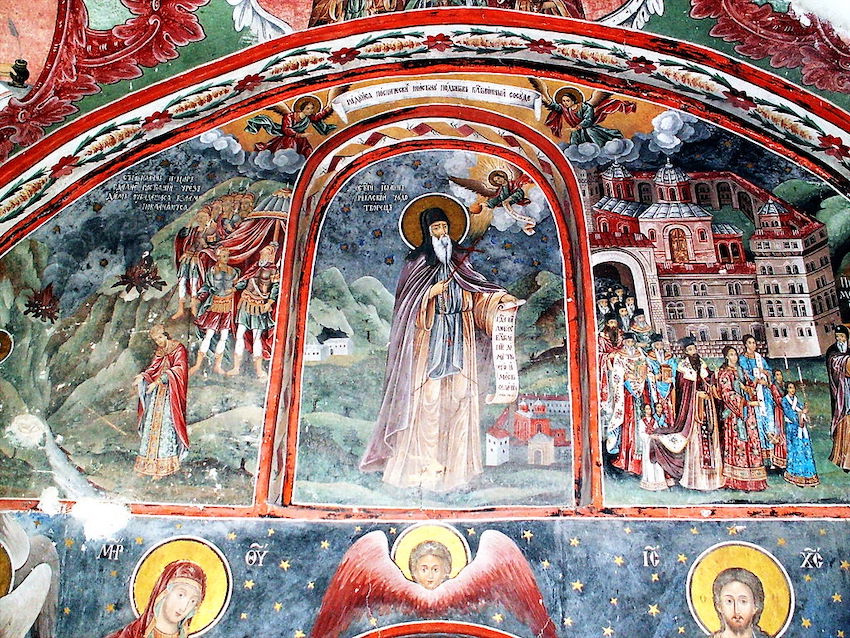
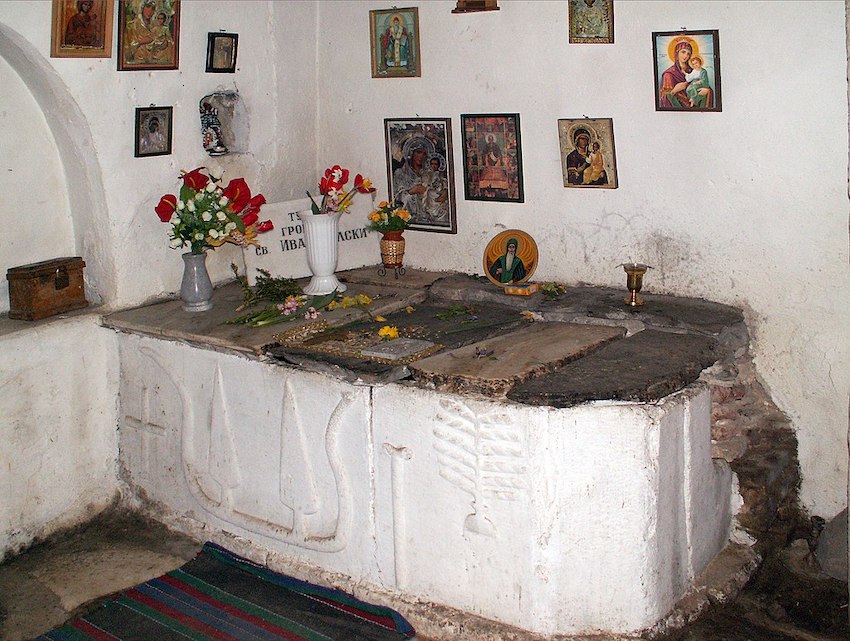
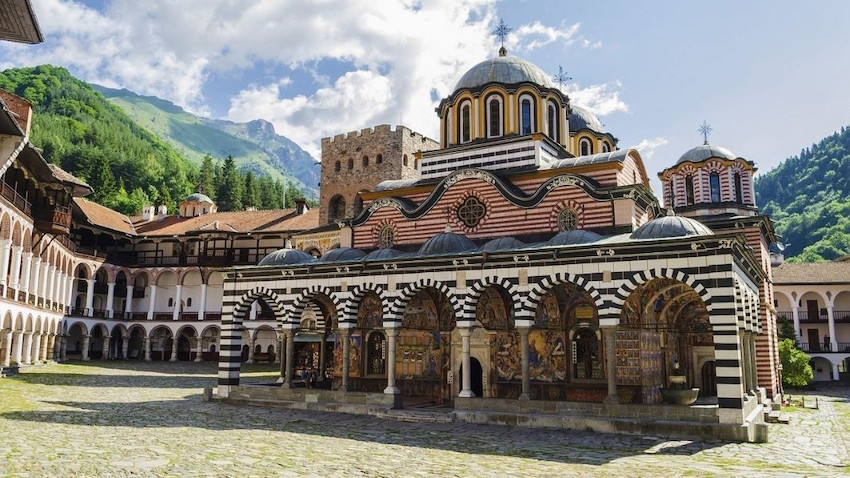
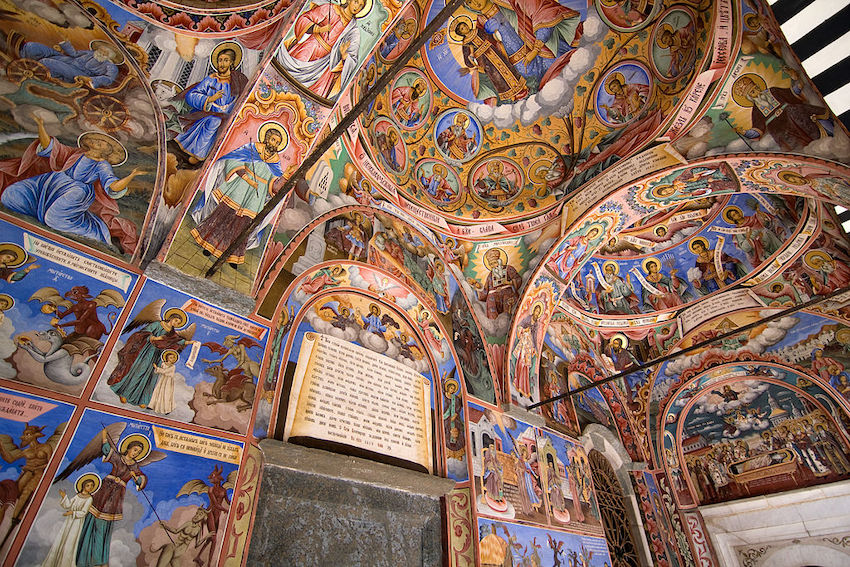
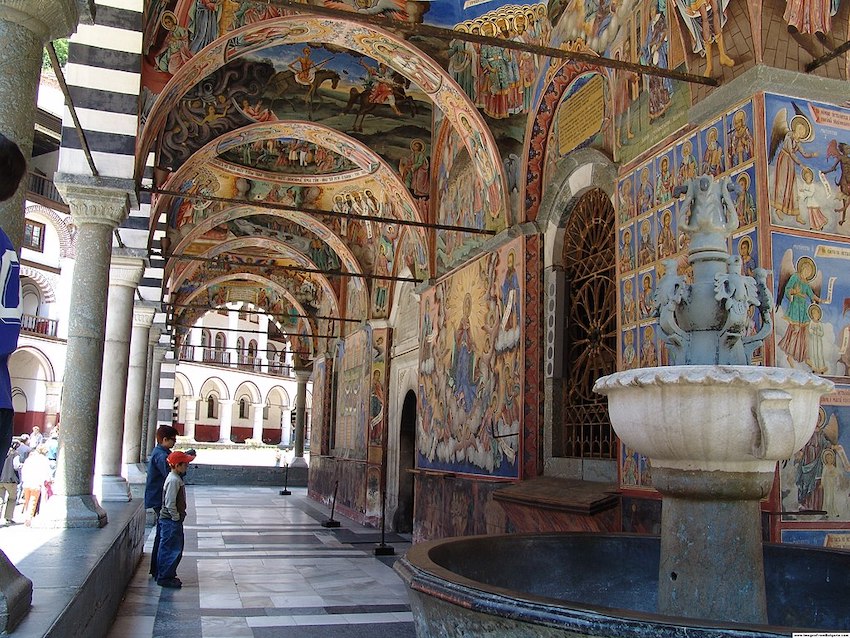
In 2016, both the Hungarian and Bulgarian Parliaments jointly declared the observance of Friendship Day, which is a strong symbol of friendly relationship and solidarity that has always existed between Hungarians and Bulgarians. It serves as an occasion to celebrate our shared values, interests, and objectives, while embracing our diverse backgrounds and individuality. Additionally, it provides an opportunity to fortify our relationships, exchange experiences and ideas, foster mutual learning, and offer each other support. This day presents a platform to express our gratitude and appreciation to the Hungarian people and government for their warm hospitality, generosity and friendship.
Celebrating the friendship between Hungary and Bulgaria a marble plaque has been installed within the Esztergom Basilica in 2016, the largest church in Hungary (currently under renovation), situated atop a hill, overlooking the Danube River, which is the natural border with Slovakia.
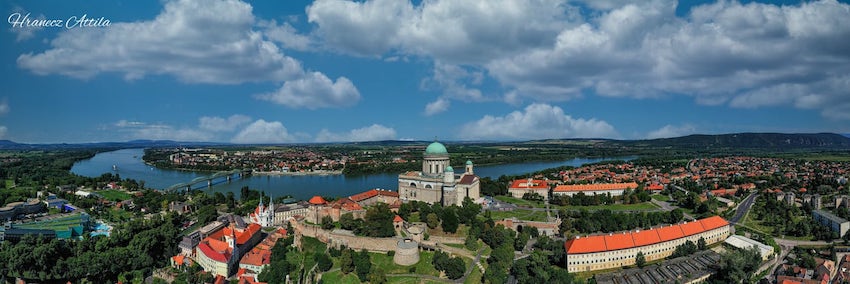
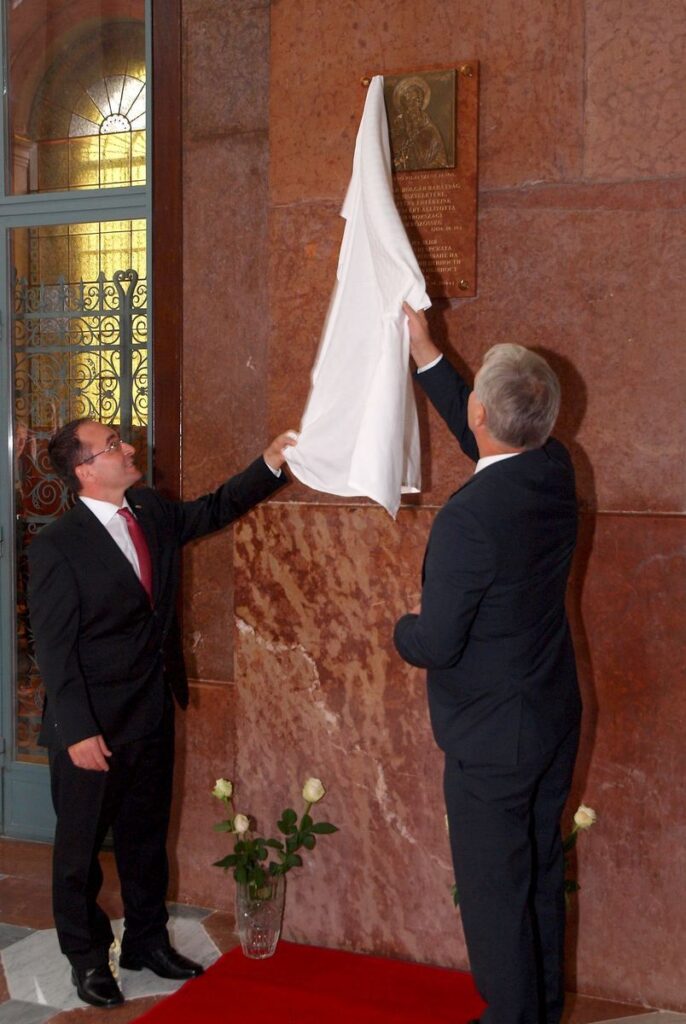
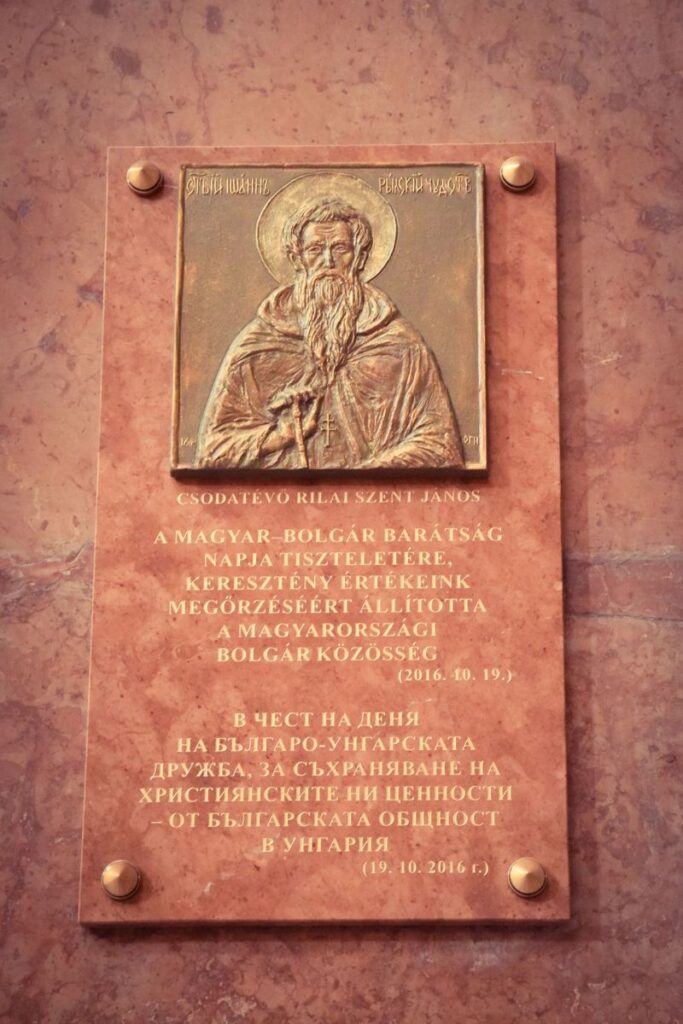
As part of the Hungarian-Bulgarian shared history, during the 12th century, the relics of St John of Rila were temporarily kept in Esztergom for a period of time, before being returned to Bulgaria, and today together with the tomb, they are safeguarded in Rila Monastery.”
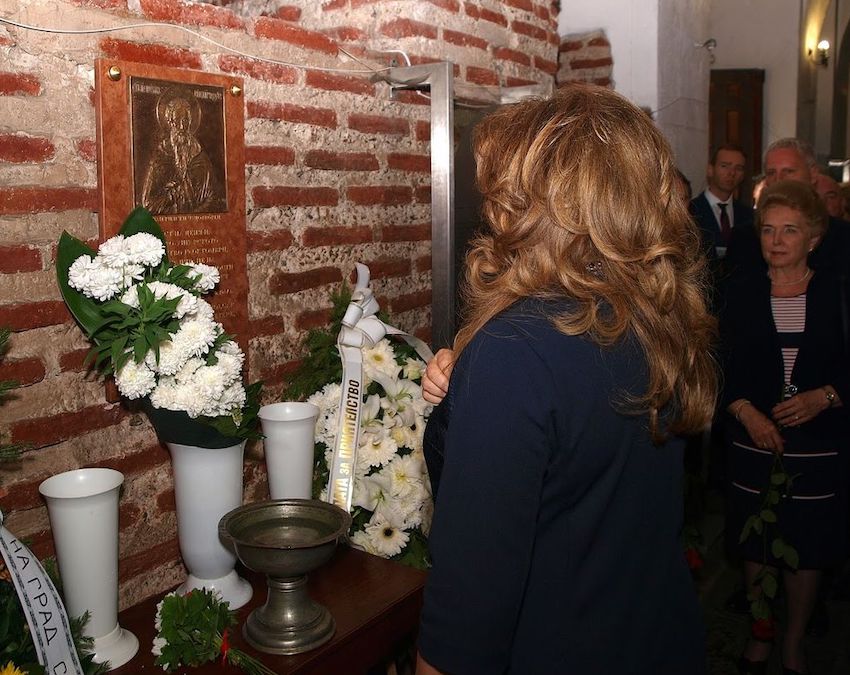
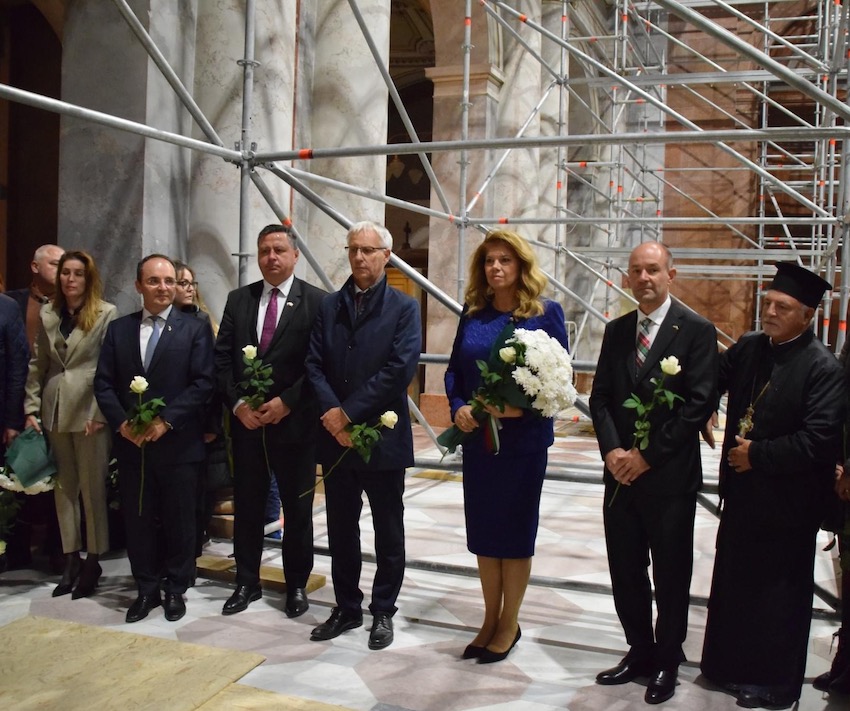
The event concluded with a reception featuring an array of Bulgarian food delicacies and renowned wines, which delighted the guests in attendance.
Source: Embassy of Bulgaria in Budapest
Photos by the Embassy of Bulgaria in Budapest, Ludovika, Bulgarian National Minority Self-government, bolgarszoszolo.hu, bolgarok.hu, bolgardok.hu

